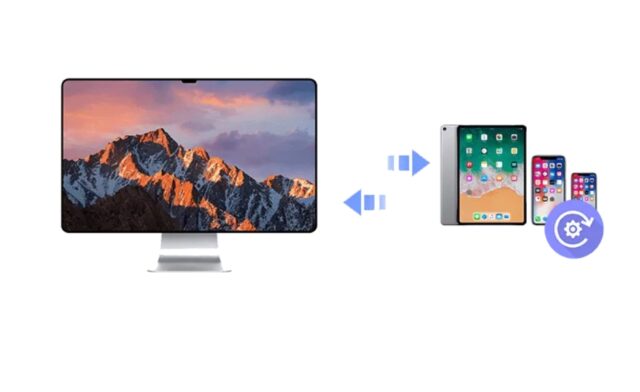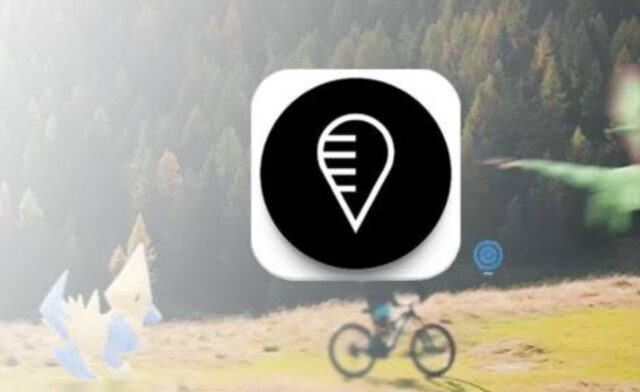
The world of Pokémon Go is an expansive one, meant to be explored by walking around in the real world to catch virtual Pokémon. However, the temptation to take shortcuts exists, often facilitated by spoofing apps that fake your GPS location. While some argue that these apps offer a convenient way to explore the game’s world, they come with substantial risks including account suspension, privacy invasion, and more.
This article delves into ten common Pokémon Go spoofing apps that you may come across for iOS and Android in 2024, discussing why you should avoid using them. Check our recommendation AnyGo!
10. iTools

iTools is a device management suite that includes a feature allowing you to fake your GPS location on iOS devices. While the software offers a variety of utility functions, its GPS spoofing feature has been flagged by Niantic and could result in account suspension if detected.
9. AnyTo
AnyTo is another iOS GPS spoofing application that offers location customization. Although initially designed for app testing, it is often misused for games like Pokémon Go. The risk of detection and subsequent account penalties make it a problematic choice for Pokémon Go players.
8. PGSharp
Exclusive to Android, PGSharp mimics the Pokémon Go app but with added features for spoofing your GPS location. It can be particularly dangerous as it requires you to download an APK from outside the Google Play Store, increasing the risk of malware.
7. FGL Pro

FGL Pro is a popular Android app that also fakes GPS location. It requires the user to enable “Developer Options,” thereby increasing the risk of affecting other functionalities on your device or making it vulnerable to security risks.
6. Fake GPS Location
This Android app offers a simple interface for GPS spoofing. While it may seem less risky due to its straightforwardness, the app is still detectable by Niantic’s algorithms, putting your account in jeopardy.
5. Dr.Fone – Virtual Location
Dr.Fone offers a virtual location feature that’s compatible with both Android and iOS. Although it markets itself as a solution for multiple apps, its use in Pokémon Go could result in detection and sanctions.
4. Fly GPS
Fly GPS is a well-known Android spoofing app among Pokémon Go players. Despite its popularity, it comes with the standard risk of account suspension, not to mention potential compatibility issues with newer Android versions.
3. iSpoofer
iSpoofer is designed exclusively for iOS and has gained notoriety for its effectiveness in faking GPS locations. However, Niantic has actively pursued action against users of iSpoofer, making it a high-risk option.
2. GPS Joystick
This Android-specific app offers a range of customizable options for faking your GPS location. The complexity and multiple settings make it easier for Niantic’s systems to detect irregularities, posing a high risk to users.
1. PokeGo++
PokeGo++ is an altered version of the Pokémon Go app for iOS that includes built-in spoofing features. It is perhaps the riskiest option, as using modified versions of the game is a direct violation of Niantic’s Terms of Service and could result in a permanent ban.
Additional Risks
Beyond the immediate threat of account suspension or banning, there are other risks associated with using spoofing apps.
Privacy Concerns
Many spoofing apps require extensive permissions, which can compromise the privacy of your data. These permissions might include access to your contacts, photos, or even other apps. The data collected could be used for targeted advertising, sold to third-party companies, or worse, used for malicious activities.

Malware and Security Risks
Downloading apps from unverified sources, especially in the case of Android APK files, increases the likelihood of installing malware on your device. Once malware is on your phone, it could steal information, monitor your activities, or render your device unusable.
Legal Consequences
Although rare, there have been instances where companies have pursued legal actions against individuals using cheats or hacks to gain an unfair advantage in online games. While not necessarily criminal, these activities could still lead to civil lawsuits or other legal consequences.
Ethical Considerations
While some argue that spoofing apps level the playing field for those who cannot physically travel, they undeniably offer an unfair advantage over players who adhere to the game’s rules. This undermines the community aspect of the game and can ruin the experience for others.

Best Practices for Legitimate Gameplay
If you want to enjoy Pokémon Go and other location-based games without running afoul of Terms of Service or ethical quandaries, there are plenty of legitimate ways to do so.
Play with Friends
One of the best ways to enjoy Pokémon Go is to play it as it was intended: socially. Join local or online communities, participate in raids, and trade Pokémon with friends.
Explore Safely
Remember that the game encourages physical movement, so make sure to adhere to safety guidelines, such as being aware of your surroundings and not playing while driving.
In-Game Purchases
While in-game purchases might speed up your progress, they are a legitimate way to gain advantages in the game. This can include buying Poké Balls, Berries, or Raid Passes.

Conclusion
While the allure of spoofing apps might seem tempting, the potential risks far outweigh the benefits. From account suspension to malware risks and ethical considerations, using these apps can compromise not only your gaming experience but also your personal data. The safest and most rewarding way to enjoy Pokémon Go is by adhering to the guidelines set forth by Niantic and the game’s community. Stay informed, play fair, and happy hunting!
By being aware of the types of spoofing apps that exist, as well as the associated risks, you can make more responsible choices and enjoy a gaming experience that is both fair and enjoyable for everyone involved.









